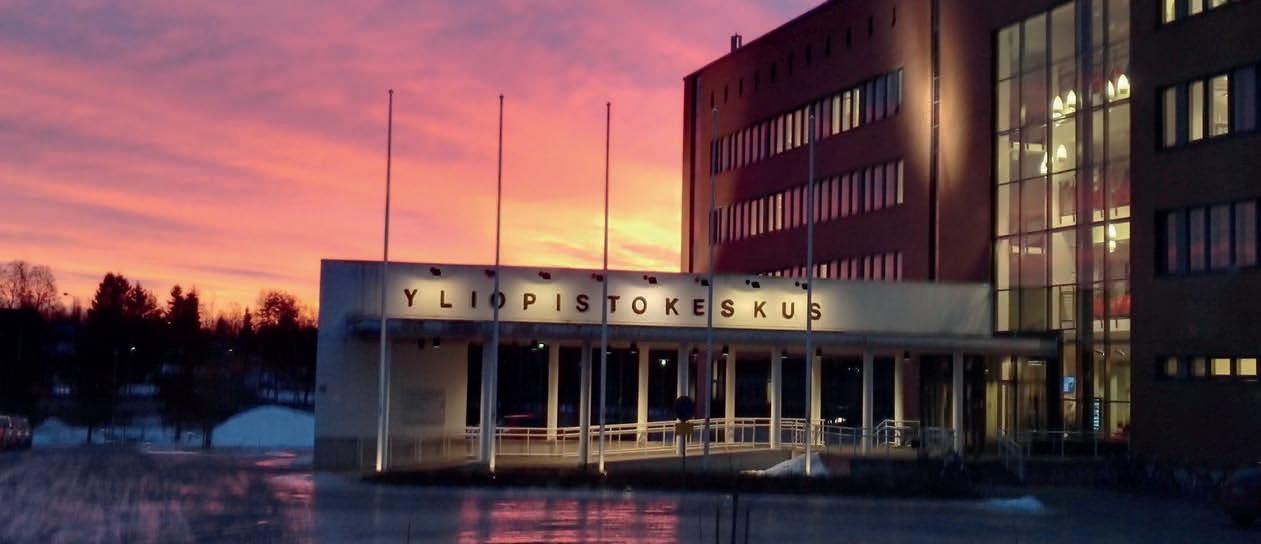
2 minute read
Planetary wellbeing as our goal
The University of Jyväskylä was active in creating the Unifi theses of sustainable development and responsibility in 2020. The theses are the basic principles in our sustainability and responsibility work, and we have already started promoting them in research, education, social interaction and campus activities. Our goal is planetary wellbeing, which is also a precondition for a socially and economically strong society.
The University’s central sustainability operator is the School of Resource Wisdom, JYU.Wisdom. The School offers its support to all researchers studying sustainability issues, regardless of faculty. JYU.Wisdom is a prominent social debater and a developer of sustainable solutions within the University as well as nationally. It also supports evidence-based decision-making in society by offering recommendations via, for example, the Wisdom Letters publication series.
Advertisement
JYU.Wisdom arranges open lunch colloquiums and highlights the theme of sustainability by organising a series of talks for the Jyväskylän Kesä festival.
The Wisdom community researchers supervise theses across faculties, and JYU.Wisdom has developed multidisciplinary sustainability education for both university students and the needs of continuous learning, including an online course on planetary wellbeing. JSBE highlights the goals for sustainable development by including them in course descriptions. The Wisdom Fellow programme offers researchers who have completed their dissertation the opportunity to work as a postdoc researcher as part of the JYU community. In 2020, ten researchers were recruited to the Visiting Fellow programme but their arrival in Jyväskylä was cancelled due to COVID-19. Inspired by this, JYU.Wisdom is now planning a Remote Fellow programme, which enables researchers to participate digitally, regardless of the coronavirus.
JYU’s goal is to be carbon neutral by 2030. In order to reach the goal, the Sustainability for JYU project set out to determine the University’s most serious environmental problems and offered recommendations for reporting, decreasing and compensating them. Evaluating environmental problems on an organisational level is unique internationally. The emerging model for accounting for environmental problems, which is based on economic accounting, is just one example of JYU providing an experimental platform for new solutions.
According to the Times Higher Education Impact Ranking, the University of Jyväskylä promoted the following sustainable development goals the most in 2020:
Sustainable development goal (SDG) 13 work against climate change, ranking: 92.
SDG 7 affordable and clean energy, ranking: 101–120.
SDG 12 sustainable consumption, ranking: 101–200.
40,818 t CO2e
CARBON FOOTPRINT
9.7×10-5 PDF
ENVIRONMENTAL FOOTPRINT OF PURCHASES
21.3 hha
ENVIRONMENTAL FOOTPRINT OF DISTRICT HEAT
CARBON FOOTPRINT SOURCES 43% Investments 26% Procurement 14% Energy & real estate 12% Travelling 5% Semma food










